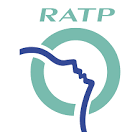Regie Autonome des Transports Parisiens

Estimated electricity consumption
N/A
Countries of production presence
N/A
RATP is a French company that operates in the Transit Services sector. The company was founded in 1949 and has since become one of the largest public transport operators in the world. RATP operates in France and internationally, providing a range of transit services including metro, bus, tram, and rail.
As a company that operates in the transit sector, RATP is well aware of the impact that its operations have on the environment. In recent years, the company has taken steps to reduce its carbon footprint and promote decarbonisation. One of the ways in which RATP has done this is by investing in renewable energy.
RATP has made a commitment to reduce its greenhouse gas emissions by 50% by 2025. To achieve this goal, the company has implemented a number of initiatives, including the use of renewable energy. RATP has invested in solar and wind energy projects, and has also signed corporate power purchase agreements (PPAs) with renewable energy providers.
Corporate PPAs are agreements between a company and a renewable energy provider, in which the company agrees to purchase a certain amount of renewable energy from the provider. This allows the company to reduce its carbon footprint and promote decarbonisation, while also supporting the growth of the renewable energy sector.
RATP has signed a number of corporate PPAs with renewable energy providers, including a 15-year agreement with a wind farm in the Champagne-Ardenne region of France. Under the agreement, RATP will purchase 20% of the wind farm's output, which is equivalent to the electricity consumption of 25,000 households.
In addition to investing in renewable energy, RATP has also implemented a number of energy efficiency measures. The company has installed energy-efficient lighting and heating systems in its facilities, and has also introduced regenerative braking technology on its trains and trams. This technology allows the vehicles to recover energy that would otherwise be lost during braking, and use it to power other systems on board.
RATP has also implemented a corporate energy management system, which allows the company to monitor and manage its energy consumption more effectively. The system provides real-time data on energy use, and allows RATP to identify areas where energy efficiency can be improved.
Overall, RATP is committed to promoting decarbonisation and reducing its carbon footprint. The company's investments in renewable energy and energy efficiency measures are a testament to this commitment. As a leading public transport operator, RATP has a significant role to play in promoting sustainable transport and reducing the environmental impact of its operations.